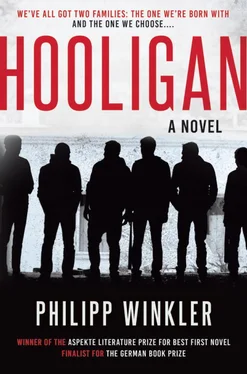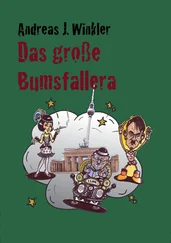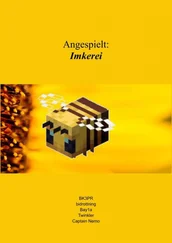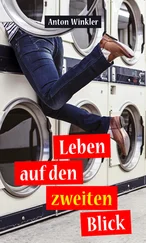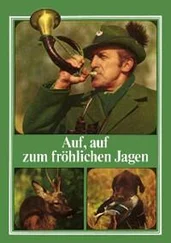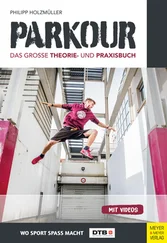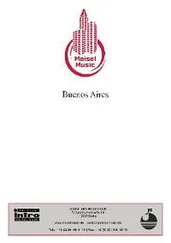“It’s not about that?! Fucking hell, Ulf! It’s about what you want! This is our life. Why doesn’t she get it? Maybe I should—”
“Heiko,” he booms. Then his voice relaxes again slightly. “It’s simple. If I keep it up, she’ll leave me. With the little one. I’m out.”
“I don’t fucking believe it!” I yell and get a tongue-lashing from Kallhein behind the counter.
“I’ll still come around Timpen once in a while, and we can go to the stadium regularly. As a kind of compensation. I just won’t be along on the road trips. Come on, Heiko. We’ll still be friends. This doesn’t change anything.”
But all I caught was a wild whooshing sound that went through my ear canals like steel wool, glowing white hot.
I say, “Everything changes, Ulf. Constantly! What the hell?! And that thing about staying friends? I’m not too sure.”
I kick my chair aside. It falls over and slides a bit. I step over it, fling open the door, and storm out.
———
I close the door to the coop behind me with wobbly knees, listen to the cooing from countless bird throats one last time. The grass is wet from the day’s rain and licks up my pant legs like long, thin chameleon tongues. Using the water faucet on the side of the house, I wash out the feed troughs I’d swapped out and lean them against the wall, upside down. When I was in the coop, I hadn’t noticed the patio light was turned on. She comes out. Must have been watching from the kitchen. Mie is wearing a thick wool sweater she risks disappearing in. Even though it’s size S at most. Her long, black hair is tied in a knot at the back of her neck. In one hand she’s carrying a deep bowl with noodles that are steaming in the cold evening air. In the other, she carries a full glass of wheat beer. She sets both on the table. Then she pulls the garden chair back from the table. There’s already a cushion on it. She motions to me, offering the chair. I hesitate. Feel like a deer or rabbit someone’s trying to lure into a trap with food.
“Have you already eaten?” she asks.
I shake my head, but then I think, damn, just say yes, thank her, and go. Too late. So I go over, thank her, and take a seat at the table. She disappears into the kitchen. I hope she won’t go and get a dessert or something, and I start to roll the noodles on the fork. The diameter increases by threefold, and I stuff it into my mouth. Then I dump a sip of beer behind it. Because I’m scarfing, I only notice from the aftertaste how good the food is. It’s nothing but ordinary fried noodles with egg, so she must’ve done something with it. Maybe a special spice mix. It tastes like ten things all at once, but in a good way, and not as if they’d all overlap. Mie comes back from the kitchen. This time with a cereal bowl full of noodles and a glass of water. Sits down next to me and begins to eat as well. She sucks the noodles hanging off her fork. Not like I did, rolling it up like a spool of cable only to shove it down the hatch.
She looks up from her bowl. Her chin very close over it.
“You cold?”
I say, “Hmm.” Which is to say no.
“You take very good care.”
I feel my eyebrows shoot up and say, “What?”
“You take good care. Of pigeons. Of father.”
For a second I think she’s pulling my leg, and all these years I hadn’t picked up on her subtle, cutting humor. Then I get that she’s actually serious.
“No, no,” I say and feel my cheeks go very hot, which simultaneously makes me furious. This is how a man without arms must feel when his nads itch. A half-plate later she’s already done with her mouse-sized portion and watches me eat, which makes me terribly nervous. But I can’t really tell her she should look somewhere else.
“Hans is difficult.”
I look at her blankly and finish the beer. She’s about to jump up and reach for my glass, but I say I’ve had enough, thanks.
She eases back again and continues: “Difficult, your father. Has many problems. But very, very nice man. You too.”
I cough up half a noodle onto my plate, quickly excuse myself, and shovel it back into my mouth. I don’t have the slightest idea how I should answer. Which is why I force my eyes to the rim of the plate and only give polite little glances. She continues to stare at me.
“My parents long dead. My… um… aunt. Grow up with her. In Bangkok. Big and bright and loud. But also lots of fun there. You must go there once. Very different from Hannover. Not so gray and cold.”
“I like Hannover.” It spilled out of me, and I think to myself, What kind of blockhead are you?!
“When you went away, your father was sad. I could see. He not say. But see. Thought maybe you go to your mother and—”
I’m finished with the noodles, let the fork clatter in the plate, and thank her for the delicious food. Mie whispers a “Thanks,” and together we bring the dishes into the kitchen.
“Let me,” I say, and wash the dishes and glasses, and place them on the drying rack. I ask Mie if it’s okay if I look for something in my old room. She nods and smiles.
I flip the switch. The bare lightbulb hanging from the ceiling hums and flickers and slowly becomes brighter, as if it were waking up from a deep sleep.
“What a room full of junk,” I say to myself. “Nothing changed.”
I doubt Hans has set foot in here since I moved out. The air is harder to breathe, as if it had an expiration date that’s long passed. I open the double window to let in some fresh air. A whopper of a moth immediately flies past me and aims for the light bulb. The moth flings itself against the light like crazy, bangs surprisingly loud. All that’s lacking is the moth saying, “Ouch!”
I put my hands on my hips and look around, clueless where I should start searching. I look under my bed, but the small space between the slats and the carpet is covered with such a thick layer of dust and cobwebs I don’t want to make the effort to pull out the boxes from underneath. The bulky duvet is just as crumpled as when I left it the morning I moved out. In the middle of the pillow the impression of the back of my head, stamped like a memory. I’d better leave the wardrobe alone, for starters. I still remember that back then I first took out all the clothes and casually tossed the ones I didn’t want anymore back inside and quickly closed the doors. If I opened them now, everything would tumble out onto me. So I pull the stacked shoe boxes from under the sawhorses and the sheetrock slab that formed something like a desk. A butt-load of unsorted pictures. From our legendary trip to the away match in Cottbus, where we were fighting for the chance to move up to a higher league. In one of them, Kai is holding up a blood-covered cup and making a face. In another, you can see me and my uncle from behind. I’d climbed onto the fence to the field, stretching my arms straight out to be able to see better. I’m wearing some kind of training jacket. Can’t remember where I had it from. It’s one of those classic jackets from the eighties and nineties in impossible colors: pink, turquoise, yellow. The sleeves are rolled back because otherwise they’d have slipped over my hands, but it looks like I had exaggeratedly puffed-up biceps. Axel stands next to me, his arms crossed, and is able to look over the fence effortlessly.
Then photos of Kai, Ulf, Jojo, and me in front of Timpen. We pose, acting cool. Relaxed expressions. Like we’re modeling for an album cover. On another we’re with Joel. He’s in the middle of us. With his pitch-black hair. Side part, as usual. His hair always looked like one of those Playmobil figures. As if you’d be able to click it off his scalp and attach other hair. He’s holding up his 96 jersey. It had to be number seven. We’re lined up behind him. Everyone has one hand on the jersey and one raised fist. Faces fixed in shouts of joy. Naturally, Jojo blinked the very second the picture was taken and looks like a slightly retarded stoner. I put it in my inside jacket pocket.
Читать дальше
